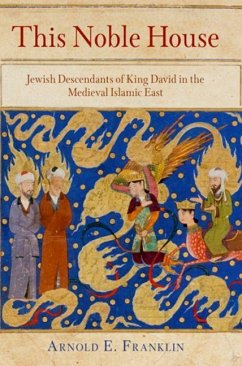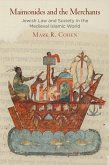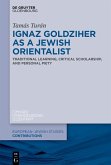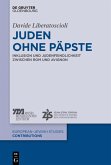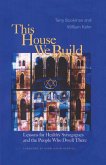This Noble House explores the preoccupation with biblical genealogy that emerged among Jews in the Islamic Near East between the eleventh and fourteenth centuries. Arnold Franklin looks to Jewish society's fascination with Davidic ancestry, examining the profusion of claims to the lineage that had already begun to appear by the year 1000, the attempts to chart the validity of such claims through elaborate genealogical lists, and the range of meanings that came to be ascribed to the House of David in this period. Jews and Muslims shared the perception that the Davidic line and the noble family of the Prophet Muhammad were counterparts to one another, but captivation with Davidic lineage was just one facet of a much broader Jewish concern with biblical ancestry.
Based on documentary material from the Cairo Geniza, the book argues that this "genealogical turn" should be understood as a consequence of Jewish society's dynamic encounter with its Arab-Islamic milieu and constituted a selective adaptation to the importance of ancestry in the dominant cultural environment. While Jewish society surely had genealogical materials and preoccupations of its own upon which to draw, the Arab-Islamic regard for tracing the lineage of Muhammad provided the impetus for deploying those traditions in new and unprecedented ways.
On the one hand, the increased focus on ancestry is an instance of medieval Jews reflexively and unselfconsciously making use of the cultural forms of their Muslim neighbors; on the other, it is an expression of cultural competitiveness or even resistance, an implicit response to the claim of Arab genealogical superiority that uses the very methods of the Arab "science of genealogy." To be sure, Franklin notes, Jews were only one of several non-Arab minority groups to take up genealogy in this way. At the broadest level, then, This Noble House illuminates a strategy that various minority populations utilized as they sought legitimacy within the medieval Arab-Islamic world.
Based on documentary material from the Cairo Geniza, the book argues that this "genealogical turn" should be understood as a consequence of Jewish society's dynamic encounter with its Arab-Islamic milieu and constituted a selective adaptation to the importance of ancestry in the dominant cultural environment. While Jewish society surely had genealogical materials and preoccupations of its own upon which to draw, the Arab-Islamic regard for tracing the lineage of Muhammad provided the impetus for deploying those traditions in new and unprecedented ways.
On the one hand, the increased focus on ancestry is an instance of medieval Jews reflexively and unselfconsciously making use of the cultural forms of their Muslim neighbors; on the other, it is an expression of cultural competitiveness or even resistance, an implicit response to the claim of Arab genealogical superiority that uses the very methods of the Arab "science of genealogy." To be sure, Franklin notes, Jews were only one of several non-Arab minority groups to take up genealogy in this way. At the broadest level, then, This Noble House illuminates a strategy that various minority populations utilized as they sought legitimacy within the medieval Arab-Islamic world.
Dieser Download kann aus rechtlichen Gründen nur mit Rechnungsadresse in A, D ausgeliefert werden.

